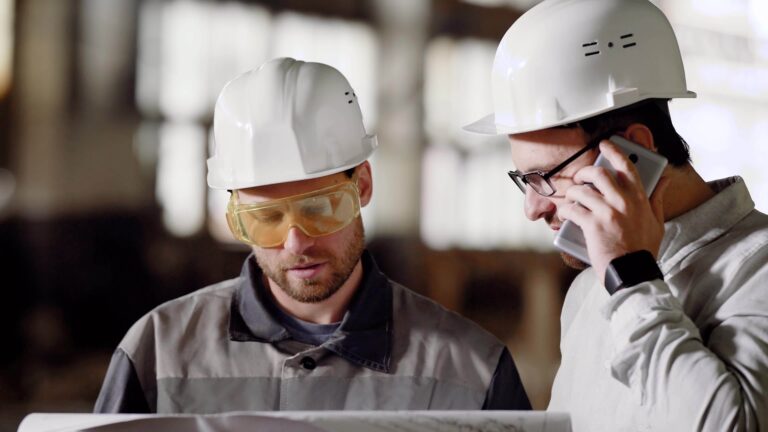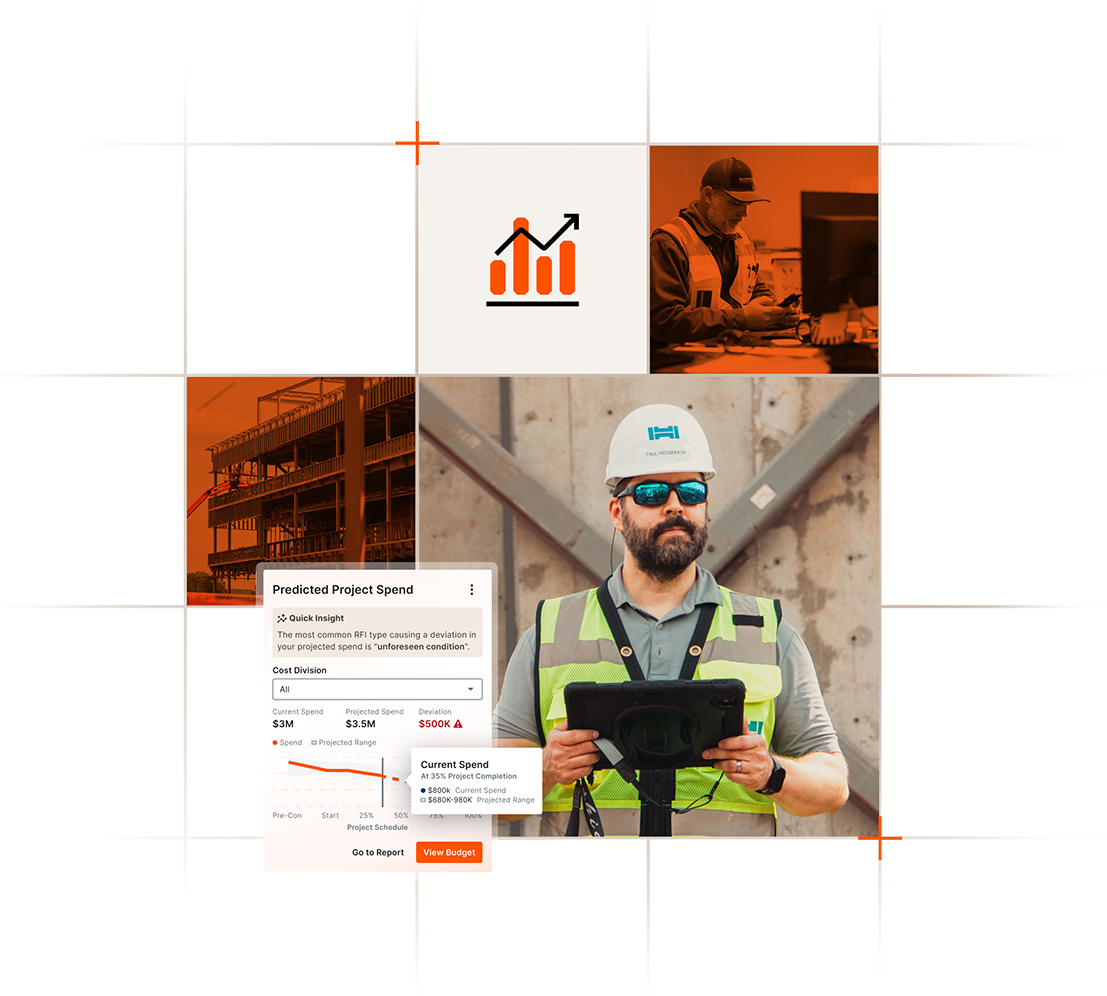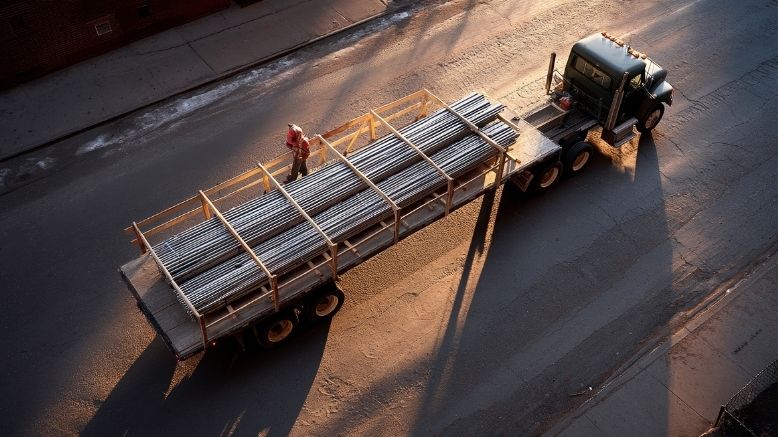— 9 min read
A Construction Superintendent’s Role on a Project Jobsite


Last Updated Oct 3, 2025

Scott Bornman
Principal, Operational Excellence
16 articles
Scott Bornman is a managing strategic product consultant at Procore Technologies. Scott began his long construction career after a successful 8+ years in the U.S. Army, where he selected to be U.S. Army Recruiter following Desert Shield/Desert Storm. Scott has had many roles in the construction field since then, working his way from a project superintendent, to an owner's rep, to a senior project manager and even Vice President of Construction at Bognet Construction and Director of Construction at Plaza Construction before joining the team at Procore.

Kristen Frisa
Contributing Writer
113 articles
Kristen Frisa is a contributing writer for Procore. She also contributes to a variety of industry publications as a freelance writer focused on finance and construction technology. Kristen holds a Bachelor of Arts in Philosophy and History from Western University, with a post-graduate certificate in journalism from Sheridan College. She lives in Ontario, Canada.
Last Updated Oct 3, 2025

A construction superintendent is the general contractor's designated representative who oversees part or all of a jobsite for the duration of a project.
The exact role of a superintendent can change based on the type and size of the project at hand, but sups are always the general contractor's eyes and ears in the field. In this role, the super can impact project outcomes and overall feelings about the project's progression.
This article will discuss the main roles and responsibilities of a construction superintendent, how a super can be successful and the career path to become one.
Table of contents
What does the construction superintendent do on the jobsite?
There are many different tasks a superintendent takes on each day, but in the end, the role boils down to a single objective: The superintendent is the person on site who makes the project work. Specifically, the super is at the site daily, ensuring everyone has what they need.
The First Face You See
Superintendents are a constant presence at the jobsite — they often open the construction gate in the morning before any subcontractors or laborers arrive and walk the site to assess progress, note any upcoming needs, and speak with subs and vendors to sort out any looming questions or concerns. Superintendents typically fill out daily logs and are the last to leave a project site in the evening.
Learn more: Mastering the Construction Safety Walk
Communication Between Roles
Aside from the information they provide in logs, sups often try to answer requests for information (RFIs) while in the field. Superintendents run meetings with subcontractors and attend OAC meetings to field questions and report on project progress.
Planning
Superintendents plan lookahead schedules and close out the day by walking the jobsite with foremen and subs to establish first-priority projects for the following day. They need to be adept at using scheduling software, spreadsheets and any other productivity tools the company uses to keep tasks and details straight.
Manages other Superintendents
Sometimes a superintendent's job is to manage all the other superintendents on the project. On a large project, there may be several superintendents, each in charge of a different facet of the construction process.
Stay updated on what’s happening in construction.
Subscribe to Blueprint, Procore’s free construction newsletter, to get content from industry experts delivered straight to your inbox.

How does the superintendent Compare to the Project Manager?
When trying to establish a hierarchy on the construction job site, many people mistakenly try to put the superintendent above or below the project manager. The two are not in a subordinate/superior relationship – rather, the two roles complement and interact with one another while they set about achieving separate objectives for the day using separate skill sets.
Whereas the project manager plans, schedules, and organizes materials and labor for the site, often moving between several jobs and the office, the superintendent works closely with construction crews on the jobsite, overseeing activities and answering questions to ensure everything is going the way it should.
Learn more about how superintendents and project managers collaborate on projects.
How to be a Successful Construction Superintendent
A successful superintendent seeks to be truly engaged with the entire construction team, from executive to subcontractor, to support them in their roles to do their best work. Superintendents are out on the site and interacting with everyone there, answering questions and ensuring the site is safe and clean. There are a few critical skills that help a person be a successful construction superintendent.
Empathy
The culture on many job sites still dictates that workers shouldn't get much into personal emotional matters, but successful construction superintendents recognize mental health challenges on the job and can support their colleagues in finding the help they need.
Far from the stereotype of a grizzled and gruff superintendent, good superintendents care about the well-being of those around them. A good leader can rally their coworkers to do the best they can with a spirit of teamwork.
Not all superintendents worked in the trades before moving into management positions, but many have. Experience in the trades can help sups be empathetic to the job at hand. A jobsite could be a miserable place to be at four in the morning when it's 25 degrees and raining or snowing outside. A good leader will understand those conditions can be brutal, and work with them to get through it.
Pride in the Work
Mustering enthusiasm on the job site is much easier for superintendents who are proud of their work and the structures that result. A construction team takes a two-dimensional representation and builds it in real life. The magic of that process can't be forgotten.
Builders make an impact on the skyline, and good builders also impact each other's lives day in and day out, and have a long-term effect on the people that are going to occupy the buildings they create. Pride and ownership in the work will produce a better quality product, every time.
Humility
While a sense of pride is critical to quality work and job satisfaction, successful superintendents will have the humility to recognize that they don't hammer a nail or lay a brick in any of the projects they work on. Superintendents must remember that each person around them is essential to the goal of creating the final product. Their job is to support the laborers and subcontractors who do the physical work of building, making it as safe and rewarding as possible.
Hard Skills
Many superintendents start their careers as skilled trades workers, and although trades experience is not expressly required, that background gives successful sups the general construction knowledge they require.
Superintendents must understand OSHA standards and how a construction project is organized. They have to know how to read a tape measure, climb a ladder, and have adequate physical fitness to keep up with on-site crews. Successful sups communicate clearly and create and carry out a good plan.
The Career Path to Superintendent
Not every construction superintendent came to the role via the same path. Some sups take courses in school, while others begin as laborers on construction jobs and work their way up the hierarchy. There's one thing all superintendents have in common: sups require a vast and deep understanding of how a construction project is planned and executed.
A Bachelor's Degree
Often, people filling a construction leadership role like a superintendent are expected to have a bachelor's degree in engineering, architecture, or construction management and at least three to four years of experience in the field. In the absence of this education, a worker may have to have more extensive experience in the field.
Start in a Trade
Many superintendents begin their construction careers in a trade. As an example, a carpenter might work the way up to become a carpenter foreman. A trades worker with the natural ability to lead and the desire to take on leadership roles might take training modules or classes depending on the union, followed by assessments and then become a superintendent in that trade.
New superintendents will start on a small project alongside a more experienced super. In time, a new super will take on less oversight and bigger projects until they are running their own, full-fledged work. After some experience as a superintendent in that trade, that person may make the leap to become a superintendent for a general contractor.
In time, projects get so big that they need numerous superintendents, each in charge of a different area of the project, and one general superintendent in charge of all the rest. Some projects can get large enough to need as many as 19 sups on a single build.
Required Certifications for Superintendents
There isn't necessarily a single set of certifications for becoming a superintendent. Some metropolitan areas will have their own requirements for safety council or other certifications, which may be particularly well-viewed for non-union projects. Meanwhile, unions provide their own certifications that will carry more weight on union projects.
The largest metropolitan areas may have their own licensing boards, and require superintendents in their cities to be licensed before taking on jobs there. For instance, New York City Department of Buildings have to license superintendents before they work on jobs within New York City.
Lean In
Good superintendents are valuable on the jobsite and are very handsomely rewarded for their talents. From the outside looking in, it's easy to devalue the work that sups do, but everyone on the project team knows a good super from a bad one.
Continued effort will get good sups recognized by owners, project managers, and project executives, and the sky is the limit for the opportunities possible. As with many other things in construction, a career as a superintendent is what you make of it.
Really great superintendents who are made in the field are very valuable in the long run. They understand what happens on the job site and how project success happens. Lean in and reap the rewards of a successful long-term career.
How Tech is Changing the Superintendent's Role
Not so long ago, superintendents were expected to understand at least the basic elements of each job on a construction project to ensure they understood the next steps for each role and the whole project.
Technology has changed those expectations because each trade can access all the documents themselves and the super can interpret the information with them. Looking at it together, team members in each trade understand clash detection, route and who gets priority going through a space because it's all shown on the drawing.
Because of this all-access view, it's not as important for superintendents to understand every aspect of what somebody else is doing — as long as they know where to go to find the information.
Superintendents who refuse to learn to use technology risk being left behind in the industry as the use of technology is likely to increase with time, not decrease.
The Power of AI for Superintendents
Artificial Intelligence capabilities are growing and may empower superintendents with even more information to benefit the day's work.
AI has the power of recognizing patterns — like when slip and falls incidents are more likely to occur — and when weather patterns are more likely to exacerbate that effect. This additional information can allow sups to address the risk before the day's work begins, heading off some of the risk in advance.
This same type of technology can help identify installation errors so that sups can dispatch inspections and fix them before it's too late. Increasingly, AI is gaining the ability to recognize patterns from past projects to optimize sequencing on upcoming work.
In short, AI is quickly becoming a possible resource to inform superintendents' work, to educate their decisions based on past patterns and future extrapolations.
Good superintendents are invaluable on the job
Superintendents are the lifeblood of any project operation, based on their ability to support all the professionals on-site to do their best work. Sups understand construction, are able to lend an empathetic ear or a motivational nudge depending on their read of the situation and are passionate about keeping a safe and tidy job site.
Given this expansive skill set, good superintendents are invaluable assets for project success. Project managers and executives who recognize their talents clamor to get them on their jobs. Project owners who recognize talented superintendents may even negotiate with general contractors specifically to get them on their projects.
Prove your project management software is profitable.
See Procore and Dodge Data & Analytics' 2025 Dodge ROI Report deep dive.

Was this article helpful?
Thank you for your submission.
99%
1%
You voted that this article was . Was this a mistake? If so, change your vote
Scroll less, learn more about construction.
Subscribe to The Blueprint, Procore’s construction newsletter, to get content from industry experts delivered straight to your inbox.
By clicking this button, you agree to our Privacy Notice and Terms of Service.
Thank you!
You’re signed up to receive The Blueprint newsletter from Procore. You can unsubscribe at any time.
Categories:
Written by

Scott Bornman
Principal, Operational Excellence | Procore Technologies
16 articles
Scott Bornman is a managing strategic product consultant at Procore Technologies. Scott began his long construction career after a successful 8+ years in the U.S. Army, where he selected to be U.S. Army Recruiter following Desert Shield/Desert Storm. Scott has had many roles in the construction field since then, working his way from a project superintendent, to an owner's rep, to a senior project manager and even Vice President of Construction at Bognet Construction and Director of Construction at Plaza Construction before joining the team at Procore.
View profile
Kristen Frisa
Contributing Writer | Procore
113 articles
Kristen Frisa is a contributing writer for Procore. She also contributes to a variety of industry publications as a freelance writer focused on finance and construction technology. Kristen holds a Bachelor of Arts in Philosophy and History from Western University, with a post-graduate certificate in journalism from Sheridan College. She lives in Ontario, Canada.
View profileExplore more helpful resources

6 Tips to Turn Construction Culture Into Daily Practice
Every construction company has a culture. Whether it’s intentional or not. The difference lies in how that culture shows up on the job. In the first article of this series on...

Turning Values into Workflows: How a GC Firm Operationalized Culture
Culture isn’t just about what companies believe — it’s about how those beliefs show up in day-to-day work. When culture is embedded into operations, it becomes something teams can rely...

How a Successful GC Firm Turned Personalities into Culture
The culture at Ryan Gootee General Contractors (RGGC), a successful construction firm based in New Orleans, was never something the company had to invent. It was always there. Woven into...

Rise of the Super-Sub: Mastering Supply Chain & Logistics for Offsite Construction
Modern construction projects come with ever-increasing demands. Owners want to see more complex builds completed on tighter schedules. At the same time, general contractors (GCs) face challenges like the ongoing...
Free Tools
Calculators
Use our calculators to estimate the cost of construction materials for your next project.
Templates
Find a template to help you with your construction project tasks.
Material Price Tracker
Get the latest U.S. retail prices and view historical trends for common building materials.
Glossary
Explore key terms and phrases used in the industry.
